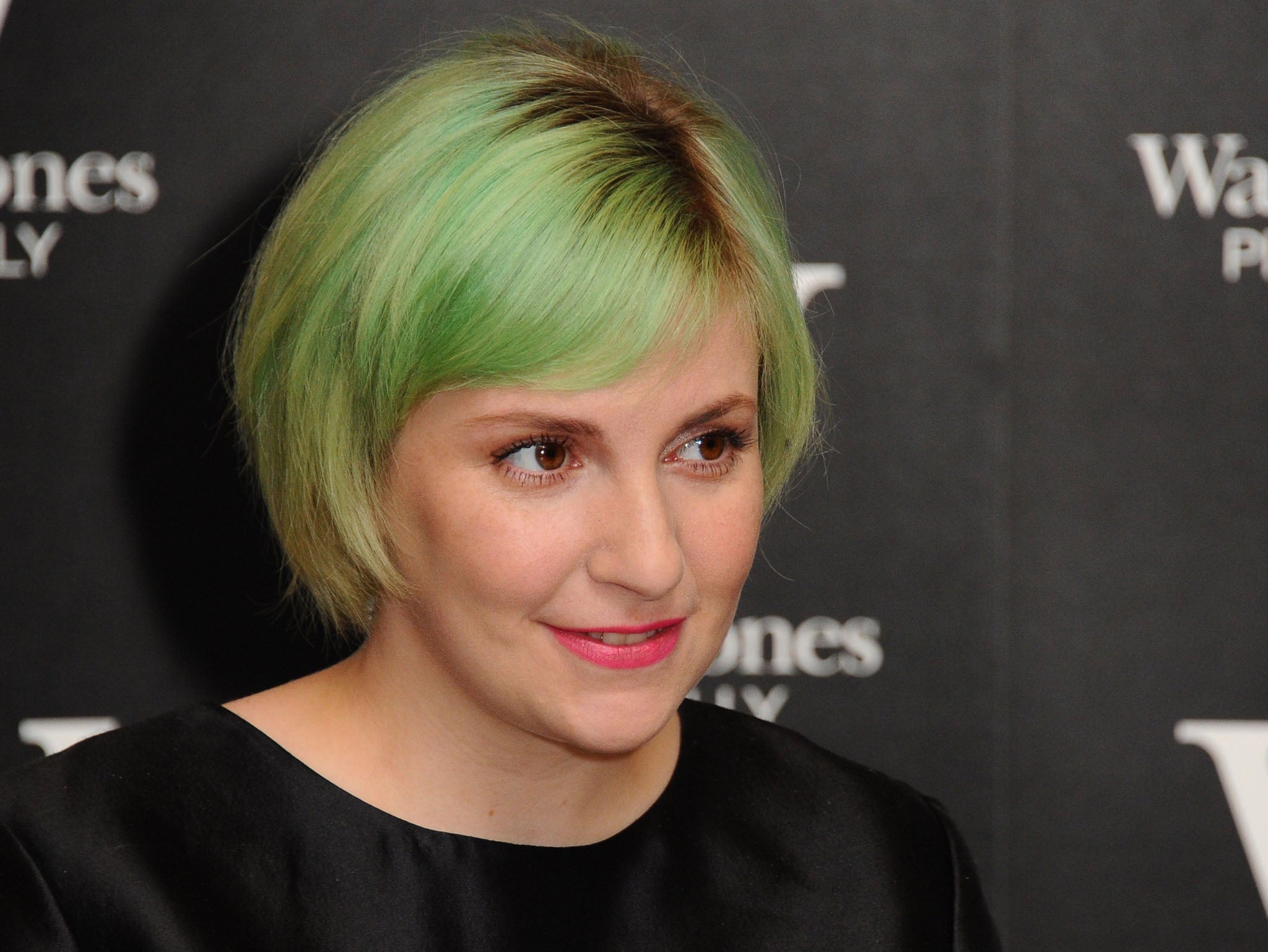As a fellow endometriosis sufferer, I commend Lena Dunham’s honesty about a disease surrounded by shame
I know the embarrassment that causes women to hide the disease that reduces them to a bag of nerve endings and pain

Your support helps us to tell the story
From reproductive rights to climate change to Big Tech, The Independent is on the ground when the story is developing. Whether it's investigating the financials of Elon Musk's pro-Trump PAC or producing our latest documentary, 'The A Word', which shines a light on the American women fighting for reproductive rights, we know how important it is to parse out the facts from the messaging.
At such a critical moment in US history, we need reporters on the ground. Your donation allows us to keep sending journalists to speak to both sides of the story.
The Independent is trusted by Americans across the entire political spectrum. And unlike many other quality news outlets, we choose not to lock Americans out of our reporting and analysis with paywalls. We believe quality journalism should be available to everyone, paid for by those who can afford it.
Your support makes all the difference.The news that Lena Dunham has been forced to withdraw from her promotional ‘Girls’ tour because of her ongoing battle with endometriosis is unsurprising to me, as a fellow sufferer of this devastating and cruel disease.
The same type of cells that grow in my womb grow in other parts of my body, on my ligaments, my bowel, my liver, and when I bleed, they bleed into places they shouldn’t and the blood can’t escape. I’m riddled with scar tissue, inside and out. My organs are stuck together with scars called adhesions. I’ve had seven surgeries over the past eleven years and there will be more. I’ll never be bikini ready.
After misdiagnoses from the age of 15, and subsequent years of agonizing pain, I was finally diagnosed with endometriosis at the age of 31. Doctors dismissed the problem as ‘in my imagination’ or easily solved by having a baby. How wrong they were. I have endured invasive tests, misguided treatment, the unrelenting horror of a body that is out of control, and the shame and humiliation of having to cancel activities at sort notice, because of the condition.
I feel nauseous with anxiety each time I have to explain to another colleague that I will be dropping out of a conference, rearranging a meeting, cancelling a talk at short notice. I’m a flake. At least, that’s what people think that don’t know the truth and how do you begin to discuss something so personal, so private and so taboo? I don’t get invited places anymore. I try to avoid making plans, in case I have to cancel. My illness has taken my life from me, sucked the joy away and left just enough humanity inside for me to see what I could have been, could have had, could have achieved.
A few weeks ago I was at a workshop with new colleagues, trying to be friendly, laughing through a sweaty fog of tramadol and codiene and the feeling that I’d had a knife plunged into my stomach. I had to walk out. I made a quiet excuse to the person next to me, and took to my hotel bed. I figured it was safer to creep away, than to make a fuss and disgust people with the reality of my condition. I don’t want to humiliate myself further.
Pain is subjective, they say. You can’t remember what it is to be in pain, they say. I’ve learned a lot about human endurance in these endometriosis years. Endometriosis pain is brutal and dehumanising. At my worst, beaten to submission by it, all I can do is lay still and take my punishment, reduced to nothing more than nerve endings and suffering. At these moments, death becomes an attractive option.
But women’s menstruation isn’t fit for human consumption in the working world, so it’s really only those close to me who know about it, who see the effect on my daily life. My surgeon said I have no quality of life now. It took for her to write that down in front of me in my medical notes to see it was true.
I can only imagine what Lena Durham is experiencing. And all power to her for admitting she is ill with this horrific condition and taking time off to deal with it. How do you live a public life when you are very ill with a disease that isn’t visible? There’s no quarter for weakness. No space to rest and take time out for self-care. Endometriosis a disability, a disease without a cure, and an underfunded and under researched horror for one in ten women across the world. Perhaps Lena’s actions will help bring this further into the light.
Join our commenting forum
Join thought-provoking conversations, follow other Independent readers and see their replies
Comments